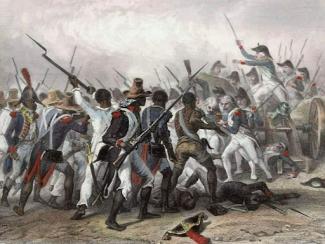
The system burned Gabriel before. When he and his brother, Solomon, stole a white farmer’s pig, he wrestled the farmer and bit his ear off in defense. He found a loophole to escape execution. Instead, they branded him while his enslaver promised the courts no more trouble. But Gabriel was already plotting something even bigger.
Sundays meant gathering cookouts on the bridge. The enslaved barbequed, gambled, fished, and drank on their day off. One Sunday in July, Gabriel crashed the party with a plan. He’d been strategizing since the spring, and within months, support for Gabriel’s rebellion spread across Virginia.
The plan was to gather, walk four miles to Richmond, and split into three groups. From there, they would set fire to the bridge, seize Capitol Square and kidnap the governor. Gabriel’s enslaver and the ear-bitten farmer were the first on his hit list. Then things turned upside down.
A violent storm hit and two shaken-up recruits conspired against Gabriel’s rebellion. The streets were flooding, and enslavers were alerted, curtailing everything. Gabriel managed to run for a month but was captured, put on trial, and hung.
Until the end, he refused to confess and requested to die alongside his comrades.
That fateful August day was unusual, but Gabriel planned to weather through, postponing with hopes of sunnier days ahead. Betrayal by those who feared taking their liberation was the rebellion’s actual downfall, but there’s nothing scarier than living under the constant storm of anti-Blackness.